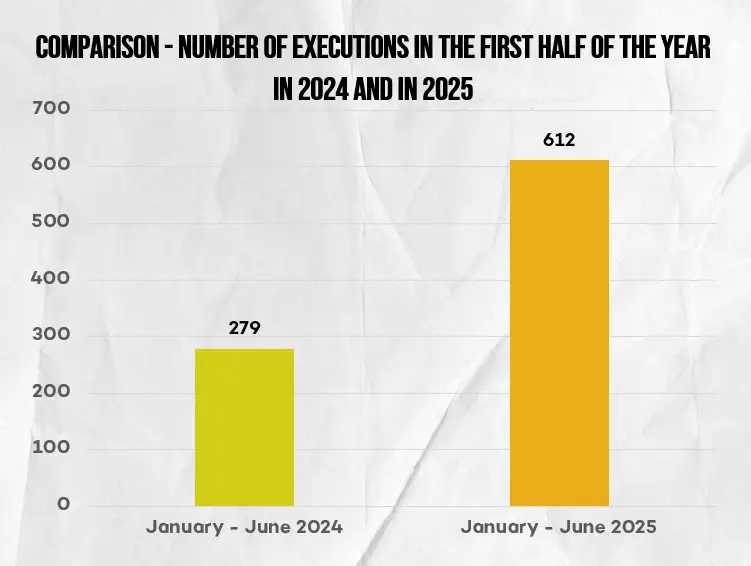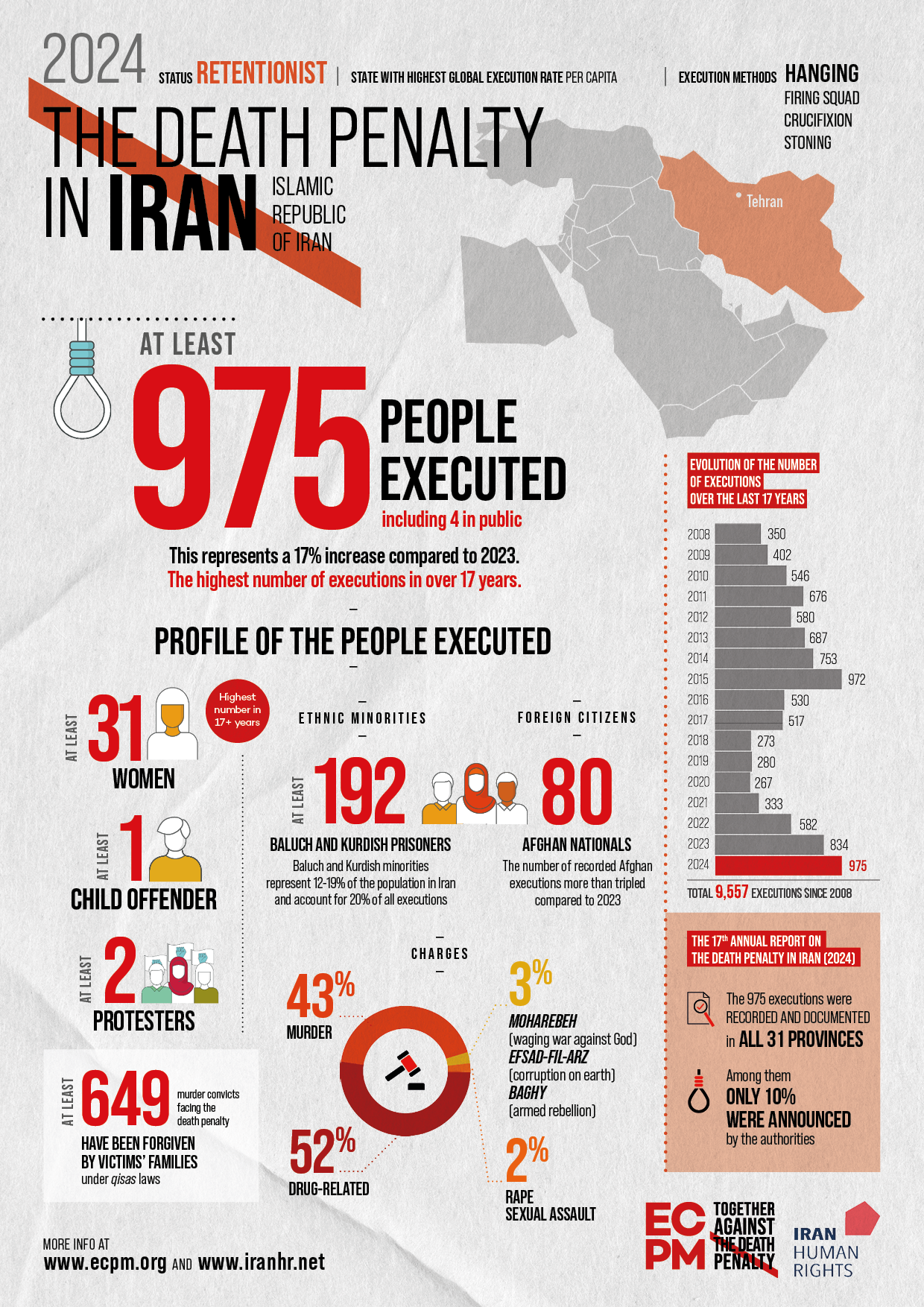Alarming upsurge in figures
Since 2021, the number of executions has been rising every year in Iran, bucking the global trend.
In 2024, Iran carried out at least 975 executions, including 31 women. This year is likely to see a further unprecedented escalation in the use of the death penalty : between 1 January and 30 June 2025, at least 612 people have already been executed, an increase of 119% compared with the same period in 2024.

Repression intensifies
On 24 June, a ceasefire came into force at the end of 12 days of armed conflict between Israel and Iran. Since the start of the war, Iran has intensified its repression of the population, using the death penalty as its main tool. Numerous people were arrested on suspicion of intelligence with the “enemy”, often tortured and sometimes sentenced to death. At least 21 people were executed during the 12 days of war.
The first victims are, of course, the Iranians. The population, minorities, the most marginalised, the most disadvantaged, and also the most committed. And then, sometimes, foreign nationals are caught in a vice and become hostages, used as symbols of a demand made to the international community.
This was the case with Cécile Kohler and Jacques Paris, who were in the wrong place at the wrong time. They have just been charged with spying for Israel and face the death penalty. On 16 May 2025, France filed a complaint with the International Court of Justice against Iran for violating its obligation to provide consular protection.

Where states have not yet abolished the death penalty, they are totally prohibited from sentencing people to death and executing them for crimes other than blood crimes. Iran’s use of the death penalty is in total violation of international law.
The adoption of new legislative provisions
On 30 June 2025, the organisation Iran Human Rights (IHRNGO) warned of the details of a new bill approved by the Iranian parliament aimed at strengthening sanctions for collaboration with the United States, Israel and ‘hostile groups’, punishing a wide range of offences with the death penalty.
On 1 July 2025, the Human Rights Council adopted the final report of the Universal Periodic Review (UPR) of Iran. As part of this review, 46 States made recommendations calling on Iran to make progress towards the abolition of the death penalty. Iran communicated its rejection of all these recommendations. In particular, it rejected calls to ‘share with the United Nations comprehensive data on the death penalty and executions’. Similarly, the recommendations by Sierra Leone and Sri Lanka to “consider” a moratorium on executions were rejected. In the end, Iran accepted only 41% of all the recommendations made to the State to improve the human rights situation at the national level.
This is a serious matter. By rejecting all the recommendations on the death penalty, Iran appears to be refusing to make the slightest progress. This is unacceptable.
Recommendations
ECPM calls on Iran to :
– Establish an immediate moratorium on the use of the death penalty.
– End arrests and death sentences.
– Reconsider a number of recommendations received during the UPR.
ECPM calls on the international community to make any aid or cooperation conditional on rapid and concrete progress towards reducing the number of sentences and executions.
Source of statistical data : https://www.iranhr.net/en/
ECPM has been working in partnership with IHRNGO since 2012 and is a member of the Steering Committee of the Impact Iran platform.

